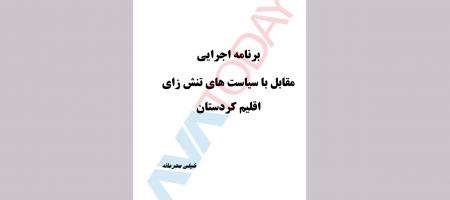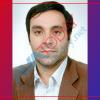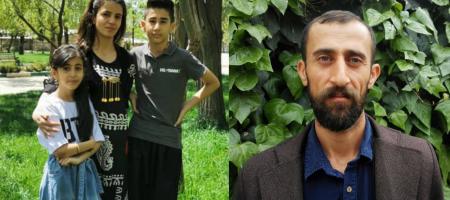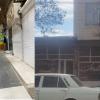
Azad has been waiting for his refugee case to be investigated by German immigration service for two-and-half-years. What makes the waiting process even worse is his painful memories and the traumas he is carrying for years since his prison time in the Islamic Republic of Iran.
The 50-years-old Kurdish man from Iran’s city of Sna (Sanandaj), accompanied by his wife and their two children, is seeking refuge in Germany. He is hoping to start a new life away from his home country, where he faced breathtaking tortures and humiliation for his anti-regime beliefs when he was young.
“The terrible memories, all those tortures and the humiliations have grown old with me. I still have nightmares and couldn’t even finish my German language classes because I lose concentration while learning new things,” Azad told Avatoday reporter. He prefers to conceal his real name.
“I never want to share my story with people who know me in person, because it is full of humiliation and misery,” he explained.
The worst of all, according to Azad, is a memory from the last time he was under investigation. Two men from the Iranian intelligence agency forced him to defecate in front of them and then forced him to eat his own excrement.
He has been arrested by Iranian intelligent agency several times over 10 years.
“I would rather die or endure any kind of physical torture than go through this kind of humiliation again,” he said with a sad voice. “I hate my life so much whenever I talk about the disgusting memory or whenever it randomly crosses my mind,” Azad said.
Azad is not a member of any special political parties and has never been affiliated with one. He was too young when he participated in a gathering in the Kurdish city of Sanandaj to show sympathy for the imprisonment of Abdullah Ocalan, the Kurdish leader of PKK in Turkey who has been imprisoned since 1999.
Many people, mostly young men, including Azad, have been detained by Iranian security forces who are afraid of any political activities related to the Kurdish minorities, even among the Kurdish populations of neighboring Turkey, Syria or Iraq.
But this was not the only time that he was detained and physically or emotionally hurt by the Iranian regime. Five years later, Azad attend a similar street protest after the terror of Kurdish leader, Rahman Qassemlou, by the Islamic regime’s agents in Europe.
“That day, I bought a color spray and joined the crowd. In Farah street, I was writing on a wall ‘death to’, but I couldn’t finish the sentence. Two security forces who were crossing the street on motorbikes arrested me,” said Azad. “I wanted to write death to Islamic Republic of Iran.”
Azad has been harshly tortured, humiliated and hurt in prison. His eyes, nose, chest, and legs were seriously wounded by the prison authorities.
Azad was also injected by torturers. “My daughter and son were born before the injection. Doctors told me later that I can never have any more children, because I am sterile because of the injection," he explained.
Although Azad has never been kept in prison for long periods as he was not affiliated with any Kurdish political opposition parties or anti-regime organizations, the frequent detainments and tortures destroyed the family’s peaceful life.
He was even forced to promise that he would no longer express his opinion in public on social or political matters and will not participate in any kind of gatherings.
“I was always under their monitoring. They wanted to find my colleagues through me, but there were none. I was not linked to anyone, yet they kept an eye on me,” said Azad.
The last time when the security forces broke into their house, Azad was not at home. A neighbor informed him that the security forces were in his house. So, he decided to run away to Tehran. His family joined him later. They all escaped the country together and sought safety in Germany.
Azad gets regular counseling from a psychologist in Germany in order to forget the memories and move on with his life, although he finds it difficult at his age.
“I want to erase them all from my mind, but most of the time the memories are just out of my control,” he concluded.










